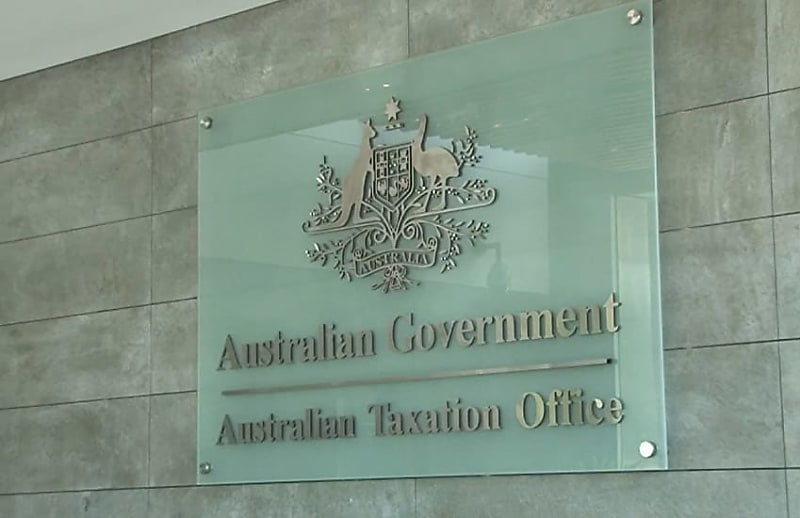ATO whistleblower pleads guilty to 4 charges
TaxWhistleblower Richard Boyle has pleaded guilty to four charges after speaking out about the ATO’s aggressive debt collection tactics.

In 2017, ex-ATO debt collection officer Richard Boyle raised concerns internally regarding unethical debt recovery tactics within the ATO.
After he felt that his complaints had been ignored, he appeared on an ABC Four Corners program in 2018, alleging that ATO debt collection officers had been instructed to use heavy-handed tactics to claw tax debts back from taxpayers.
His whistleblowing efforts sparked independent inquiries which substantiated his allegations, leading to new laws to prevent such conduct from being repeated.
Regardless, Boyle has been subjected to charges related to his actions in gathering evidence before raising his concerns internally.
On Tuesday, Boyle pleaded guilty to the charges of recording protected information, recording another person’s tax file number, intentionally using a listening device to record a private conversation without consent and disclosing protected information to another entity.
Boyle’s case has drawn condemnation from the Greens, who called his guilty plea a “damning indictment” of Australia’s whistleblower protection laws.
“Richard Boyle exposed ATO thuggery and saved countless taxpayers from abuse and for that this government rewarded him with a criminal conviction. This is a national disgrace,” Greens senator David Shoebridge said.
"Boyle put his career and his freedom on the line to stop people’s lives being smashed by unethical practices in the ATO. He should get a medal for that, not a conviction.”
One count Boyle was accused of – recording protected information – related to an instance where he took photographs of a taxpayer’s information, including their name, phone number and financial circumstances, court documents alleged.
The taxpayer, known in court documents as ‘Mr CC,’ owed the ATO approximately $80,000. He had suffered a severe illness and was hospitalised, resulting in him losing assets, work and income. At the same time, his wife was on maternity leave following the birth of their third child.
His mental health struggles, combined with the financial pressure, had led to a suicide attempt, court records said.
After Mr CC made a hardship call to Boyle, he recommended the ATO to not pursue the debt, in a bid to temporarily relieve the financial hardship. The recommendation was accepted.
Boyle asserted that he had taken the photos as evidence to highlight the immense stress that the ATO could cause taxpayers and the real risk of harm that debts could inflict.
He said he had intended to use it as part of a public interest disclosure to highlight the importance of case-by-case management and having compassionate options, in contrast to the ATO’s harsh approach, which encouraged the issuance of garnishee orders.
In 2017, the ATO debt recovery team in Adelaide had been instructed - “quite clearly and categorically” - to start issuing standard garnishees on every case, Boyle told Four Corners.
A garnishee notice is a debt collection tool which allows the ATO to order banks to hand over taxpayer money directly to the tax authorities without consulting the taxpayer.
In August 2017, Boyle allegedly recorded a ‘garnishee training meeting’ in a bid to collect evidence for a public interest disclosure on the scheme, which he viewed as harmful to taxpayers. This was the basis for another charge against him.
He said that the garnishee directive had “caused businesses to be shut down without cause and individual taxpayers to be pushed to the point of despair and suicide,” court documents showed.
“The motivation appeared to be that we were just collecting revenue before the end of the financial year and it didn’t matter if we hurt members of the community,” Boyle told Four Corners.
It was later found that the Adelaide ATO office had been issuing more standard garnishee notices than other branches, and that a significant number had been inappropriate.
Boyle’s guilty plea has drawn broad criticism regarding both his treatment and Australia’s inadequate whistleblower protection laws.
“By refusing to drop the prosecution against Richard Boyle, the Albanese Government has sent a clear message to any would-be whistleblowers: if you speak up, be prepared to be punished,” Tosca Lloyd, campaigner at the Whistleblower Justice Fund, said.
“Richard Boyle’s whistleblowing helped put an end to unethical practices at the tax office, practices that hurt everyday people. His reward has been a cruel prosecution at the hands of successive federal governments.”
The crossbench has put forward a bill to establish a whistleblower protection body in response to cases such as Boyle’s.
“If you want hard evidence that our whistle-blower protection legislation doesn't work, then just look at the case of Richard Boyle, the former Australian Tax Office official who faces the prospect of life in prison for revealing information about egregious behaviour within the Australian Taxation Office, information which has been proven to be correct,” independent MP Andrew Wilkie said about the proposed bill.
The bill is currently before the Senate.
While the prosecutor has said they would not pursue a custodial sentence for Boyle, the trial is likely to result in a conviction being recorded against his name, which would haunt him every time he applied for a job.
Boyle is scheduled to return to court in August for a pre-sentence hearing.




